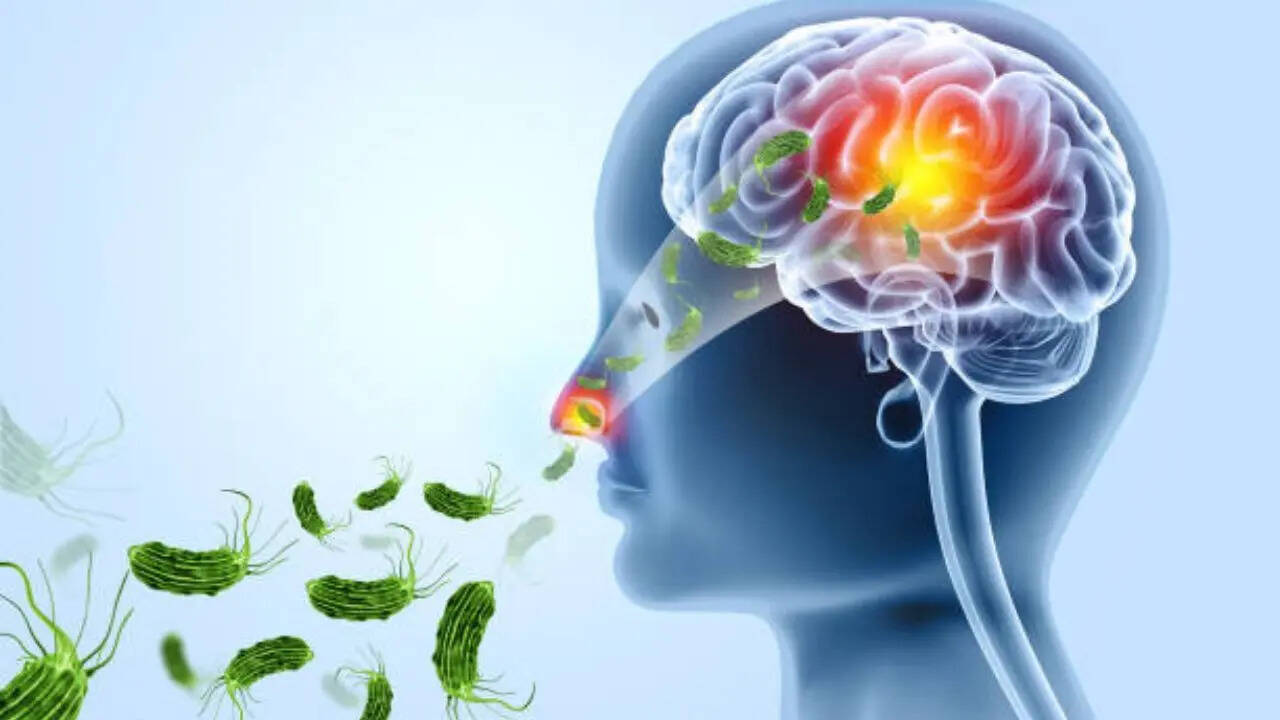Health
Kerala Faces Urgent Health Crisis with 19 Deaths from Amoeba

Kerala is experiencing a serious public health crisis as it grapples with a significant increase in cases of Primary Amoebic Meningoencephalitis (PAM). This rare brain infection, caused by the organism Naegleria fowleri, has led to 19 fatalities among 61 confirmed cases reported over recent weeks. State Health Minister Veena George has indicated that the situation poses a formidable challenge to health authorities across the state.
The infection has been previously associated with clusters in the districts of Kozhikode and Malappuram, but it is now spreading sporadically throughout Kerala. Patients affected range from a three-month-old infant to a 91-year-old adult. Unlike last year, when clusters were more common, many of the current cases are isolated, complicating containment efforts. In 2024, Kerala reported 39 cases of PAM with a fatality rate of 23 percent, while nearly 70 cases have been recorded since the beginning of this year, resulting in a mortality rate of 24.5 percent.
Doctors attribute the rise in cases to improved detection methods facilitated by advanced laboratory capabilities.
Government Response and Public Safety Measures
In response to the crisis, the Kerala government has implemented several safety protocols. Local authorities have been instructed to erect signboards around ponds, cautioning against swimming or bathing in these bodies of water. The government has also invoked the Public Health Act to mandate regular chlorination of swimming pools and water tanks.
Despite these measures, health experts warn that chlorinating larger water bodies, such as ponds, is impractical due to ecological impacts, including harm to aquatic life. With a population exceeding 30 million, effectively monitoring all water sources in the state presents a significant challenge.
Understanding Naegleria fowleri and PAM
The Naegleria fowleri amoeba is found globally in warm, shallow freshwater environments, including lakes, rivers, and springs, as well as in soil. As a free-living organism, it does not require a host. Infection typically occurs when contaminated water enters the nose, allowing the amoeba to reach the brain, particularly during activities such as swimming or diving. Rarely, PAM can also arise from improperly treated tap or swimming pool water. Notably, ingesting contaminated water does not result in infection.
Symptoms of PAM emerge suddenly and can be severe, including:
– High fever
– Severe headache
– Nausea and vomiting
– Stiff neck and sensitivity to light
– Mental confusion or coma
Preventing Infection
While PAM is rare, prevention is crucial. Key recommendations include:
– Avoid swimming or engaging in water sports in warm freshwater, particularly still waters, without using nose plugs.
– Do not use tap water for nasal rinsing devices such as neti pots.
– Utilize filters to eliminate pathogens from water.
– Disinfect water intended for nasal use with chlorine bleach liquid or tablets.
Anyone experiencing symptoms like fever or headache after exposure to warm freshwater should seek medical attention immediately.
The current outbreak in Kerala highlights the importance of public health awareness and proactive measures to combat rare but deadly infections like PAM.
-

 World4 months ago
World4 months agoSBI Announces QIP Floor Price at ₹811.05 Per Share
-

 Lifestyle4 months ago
Lifestyle4 months agoCept Unveils ₹3.1 Crore Urban Mobility Plan for Sustainable Growth
-

 Science3 months ago
Science3 months agoNew Blood Group Discovered in South Indian Woman at Rotary Centre
-

 World4 months ago
World4 months agoTorrential Rains Cause Flash Flooding in New York and New Jersey
-

 Sports3 months ago
Sports3 months agoBroad Advocates for Bowling Change Ahead of Final Test Against India
-

 Top Stories4 months ago
Top Stories4 months agoKonkani Cultural Organisation to Host Pearl Jubilee in Abu Dhabi
-

 Science4 months ago
Science4 months agoNothing Headphone 1 Review: A Bold Contender in Audio Design
-

 Top Stories4 months ago
Top Stories4 months agoAir India Crash Investigation Highlights Boeing Fuel Switch Concerns
-

 Sports3 months ago
Sports3 months agoCristian Totti Retires at 19: Pressure of Fame Takes Toll
-

 Business4 months ago
Business4 months agoIndian Stock Market Rebounds: Sensex and Nifty Rise After Four-Day Decline
-

 Politics4 months ago
Politics4 months agoAbandoned Doberman Finds New Home After Journey to Prague
-

 Top Stories4 months ago
Top Stories4 months agoPatna Bank Manager Abhishek Varun Found Dead in Well









